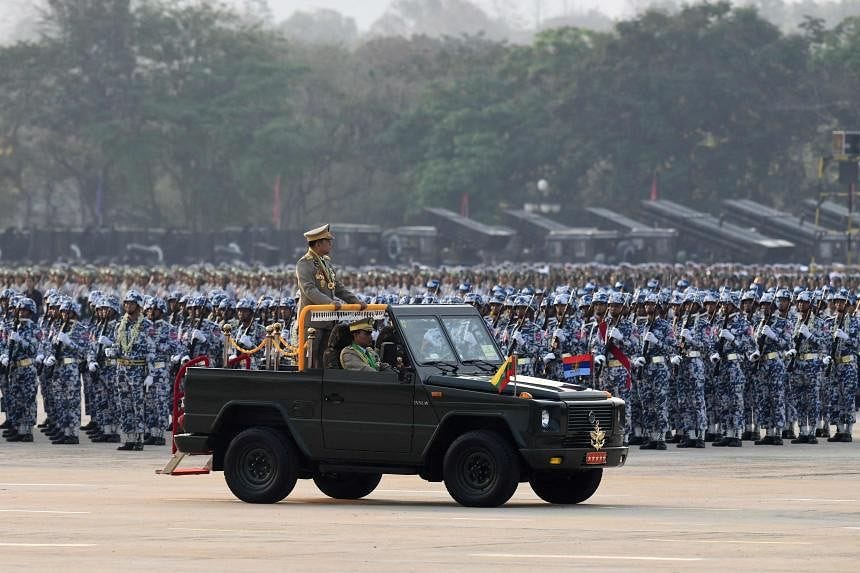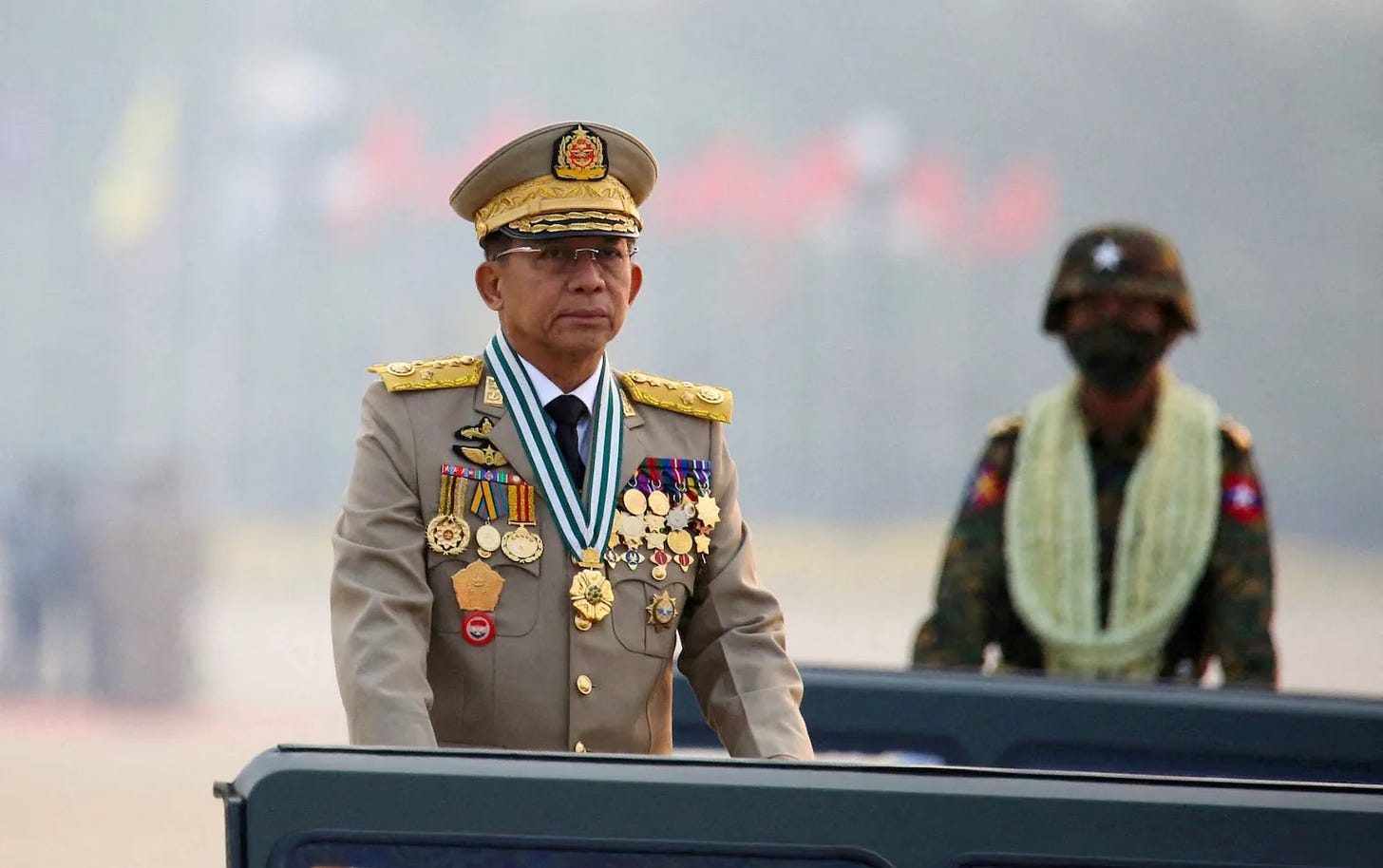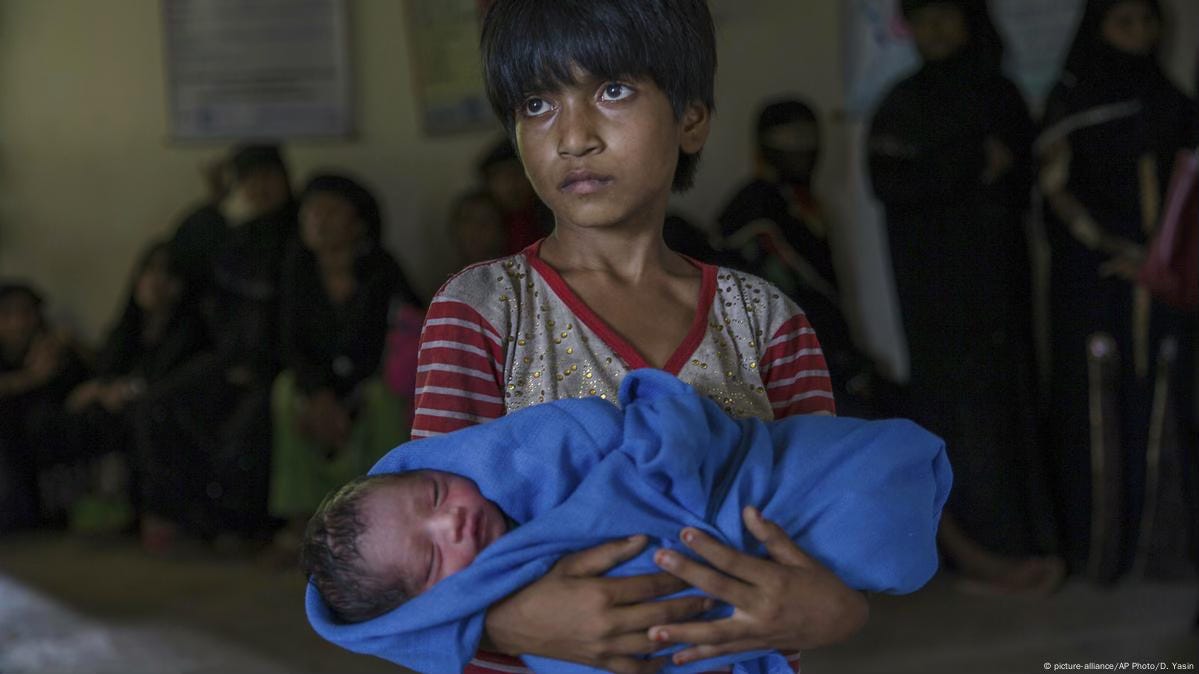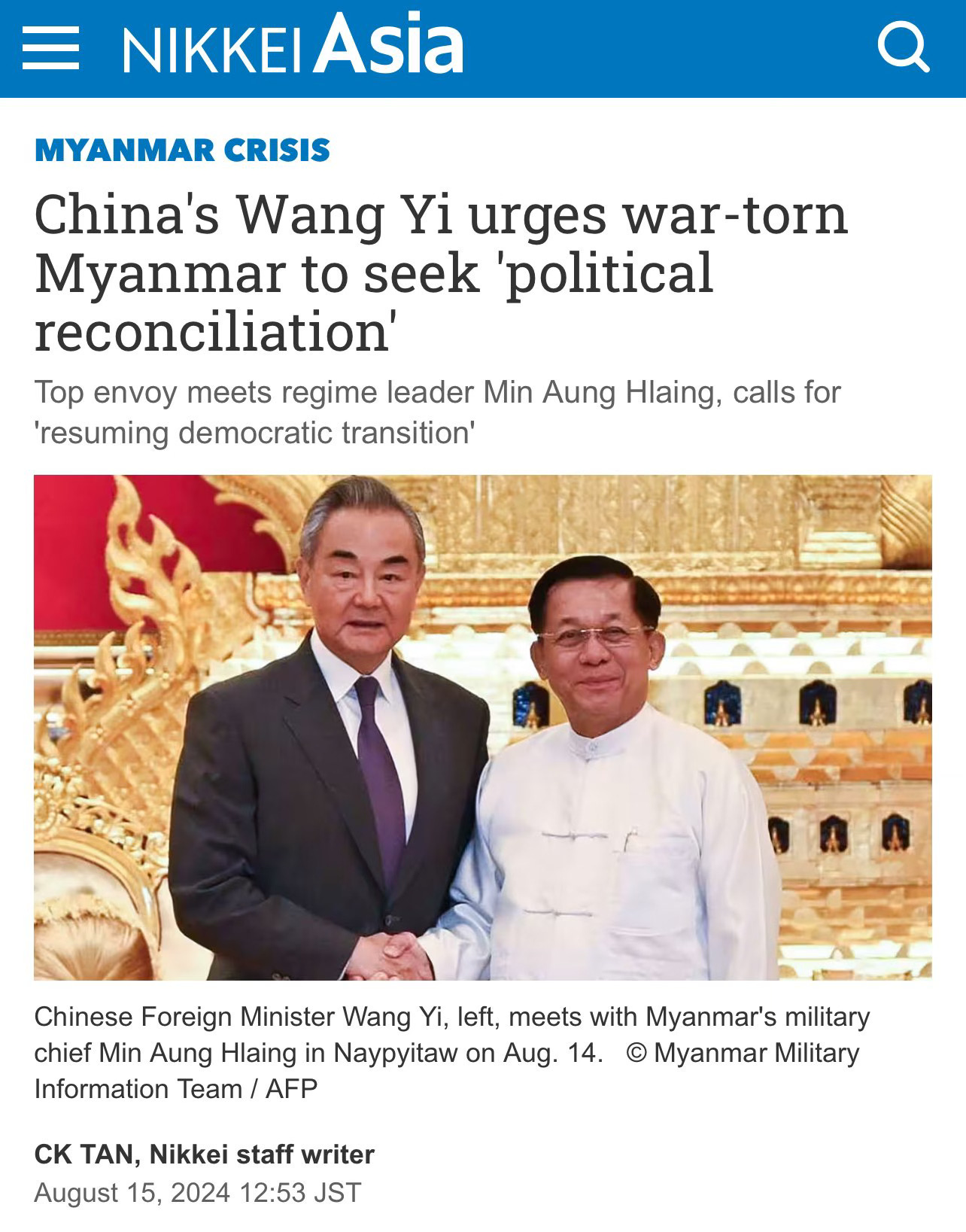Dual Use Duel
The UNHRC special rapporteur for Myanmar has been busy amplifying allegations and misleading narratives, but dual-use and Singapore and Thai banks do not make a case for human rights crimes.
UN expert says Myanmar military imported $1bn in weapons and ‘dual-use‘ items
By Roger McKenzie
MYANMAR’S military has imported at least $1 billion (£804.71 million) worth of weapons since its February 2021 coup, some of which it has used to carry out atrocities against civilians, according to a United Nations report released Wednesday.
The report documents over 12,500 purchases that were shipped directly to the Myanmar military or known Myanmar arms dealers working for the military from February 1 2021, when the military ousted the elected government of Aung San Suu Kyi, until December 2022.
Tom Andrews, the UN independent investigator on human rights in Myanmar, said that the volume and diversity of equipment the military received was “staggering,” ranging from fighter jets and attack helicopters and drones to advanced missile systems, tank upgrades, sophisticated communications equipment, radar complexes and components for naval ships.
Myanmar is mired in strife because of a political crisis unleashed when the military took power.
Its takeover prompted widespread peaceful protests that security forces suppressed with deadly force, triggering armed resistance throughout the country that the army has been unable to quell.
Mr Andrews said at least 22,000 political prisoners have been detained since the coup, at least 3.500 civilians have been killed and 1.5m people have been forcibly displaced.
https://morningstaronline.co.uk/article/w/un-expert-says-myanmar-military-imported-1-billion-weapons-2021-coup
Myanmar: UN expert spotlights foreign banks in ‘probable’ war crimes
GENEVA (26 June 2024) – Foreign banks are facilitating the Myanmar military junta’s access to weapons and related materials that are sustaining its campaign of violence and brutality against the people of Myanmar, according to a new report released today by Tom Andrews, the UN Special Rapporteur on the situation of human rights in Myanmar.
Banking on the Death Trade: How Banks and Governments Enable the military Junta in Myanmar identifies 16 banks in seven countries that have processed transactions linked to the junta’s military procurement in the past two years, and an additional 25 that have provided correspondent banking services to Myanmar’s state-owned banks that are controlled by the junta.
“By relying on financial institutions that are willing to do business with Myanmar state-owned banks under its control, the junta has ready access to the financial services it needs to carry out systematic human rights violations, including aerial attacks on civilians,” the Special Rapporteur said.
“International banks that facilitate transactions that include Myanmar state-owned banks are at high risk of enabling military attacks on Myanmar civilians. I urge them to stop doing so. Banks have a fundamental obligation to not facilitate crimes – and this includes war crimes and crimes against humanity,” Andrews said.
“The good news is that the junta is increasingly isolated. The Myanmar military’s annual procurement of weapons and military supplies through the formal banking system declined by a third from the year ending March 2023 to the year that followed – from US$377 million to $253 million.
“The bad news is that the junta is circumventing sanctions and other measures by exploiting gaps in sanctions regimes, shifting financial institutions, and taking advantage of the failure of Member States to fully coordinate and enforce actions.”
The report examines a dramatic shift in the role of two ASEAN countries as sources of weapons and military supplies for the junta. After a report last year by the Special Rapporteur identified Singapore as Myanmar’s third largest source of weapons and related materials, the government of Singapore launched an investigation of the Singapore-based entities involved in the trade. In the year ending March 2024, the flow of weapons materials to Myanmar from Singapore-registered companies dropped by nearly 90 percent compared to the previous year.
Military procurement through Thailand has moved in the opposite direction. In the year ending March 2024, the junta imported nearly US$130 million in weapons and military supplies from Thailand-registered suppliers, more than double the total from the previous year. Thai banks have played a crucial role in this shift. Siam Commercial Bank, for example, facilitated just over US$5 million in transactions related to Myanmar military in the year ending March 2023, but that number skyrocketed to over $100 million in the following year.
“Singapore’s example demonstrates that a government with sufficient political will can make a significant difference toward shutting down the Myanmar death trade. Thailand has an opportunity to follow this powerful example by taking action that will deal a huge blow to the junta’s capacity to sustain its escalating attacks on civilian targets. I urge it to do so,” the expert said.
Over 5,000 civilians have been killed by the junta since the coup, at least 3 million people are displaced, and more than 20,000 political prisoners remain behind bars in Myanmar. Over the last six months, military airstrikes against civilian targets have increased five-fold while the junta continues to lose military outposts, territory, and troops to resistance forces.
“With the junta on its heels, it is critical that financial institutions take their human rights obligations seriously and not facilitate the junta’s deadly transactions. It is also critical that States step up by fully coordinating their actions, including by closing loopholes in sanctions regimes,” the Special Rapporteur said.
“Sanctioning governments should be targeting the networks supplying jet fuel to the junta. It is also critical that they target Myanma Economic Bank, which is not subject to international sanctions and has become the go-to bank for the junta. These actions could play a decisive role in helping to turn the tide in Myanmar and saving untold numbers of lives,” he said.
Mr. Thomas Andrews (United States of America) is the Special Rapporteur on the situation of human rights in Myanmar. A former member of the US Congress from Maine, Andrews is a Robina Senior Human Rights Fellow at Yale Law School and an Associate of Harvard University’s Asia Center. He has worked with the National Democratic Institute for International Affairs and parliamentarians, NGOs and political parties in Cambodia, Indonesia, Algeria, Croatia, Serbia, Ukraine and Yemen. He has been a consultant for the National Coalition Government of the Union of Burma and the Euro-Burma Network and has run advocacy NGOs including Win Without War and United to End Genocide.
The Special Rapporteurs are part of what is known as the Special Procedures of the Human Rights Council. Comprising the largest body of independent experts in the UN Human Rights system, Special Procedures is the general name of the Council's independent fact-finding and monitoring mechanisms that address either specific country situations or thematic issues in all parts of the world. Special Procedures experts work on a voluntary basis; they are not UN staff and do not receive a salary for their work. They are independent from any government or organization and serve in their individual capacity.
UN Human Rights, country page – Myanmar

Myanmar military favouring Thai banks over Singapore banks for arms transactions: UN report
By Varun Karthik
SINGAPORE – Myanmar’s junta is increasingly using banks in Thailand instead of Singapore for its purchases of military supplies, including arms used against groups opposing its 2021 power grab, according to a United Nations report.
The report, released by UN special rapporteur Tom Andrews on June 26, said banks located in Singapore were previously “the most important financial facilitators for Myanmar’s military procurement”, processing more thanUS$260 million (S$353 million) of arms payments between April 2022 and March 2023 (financial year 2022), which amounted to more than 70 per cent of the junta’s arms payments.
But the amount fell sharply to just over US$40 million between April 2023 and March 2024 (financial year 2023).
The report added that most of the US$40 million processed in financial year 2023 was done in the first quarter of that financial year.
Banks in Thailand went from facilitating over US$60 million worth of military procurement in financial year 2022 to processing more than double that – US$120 million – in financial year 2023.
However, the report noted that the financial institutions might not be helping facilitate military purchases wilfully.
“Nothing in the evidence reviewed by the Special Rapporteur suggests that banks named in this paper were directly aware of the nature of specific transactions they facilitated,” the report said.
It added that the junta was using “a variety of techniques to evade sanctions, undermine risk management processes and avoid transaction monitoring activities” to overcome the due diligence processes that banks had in place.
Thailand’s Ministry of Foreign Affairs said in a statement on June 27 that it had seen the report and was looking into it.
“We will have to first establish the facts before considering any further steps,” it said.
The drastic decrease in the purchase of weapons and related equipment processed in Singapore came after a government investigation prompted by an earlier report Mr Andrews released in May 2023.
That report alleged that Singapore-based companies were a source of substantial amounts of supplies for the junta, while banks were helping facilitate a significant amount of their procurement.
Mr Andrews said in an interview with The Straits Times on June 27: “(The Singapore Government) made a very focused effort to understand what was happening and to investigate these developments, and I was very happy to provide whatever support I could.”
Calling the progress Singapore made both “dramatic” and “very significant”, he said: “This is what can happen when a government makes this a priority (and) focuses on the facts”, adding that Singapore’s example serves as a “ray of light… for the region and the world”.
Much of Singapore’s decline in military-related procurement was attributed to UOB, which went from facilitating more than US$180 million in military procurement in financial year 2022 to none in financial year 2023.
“UOB is in full compliance with applicable sanction laws and regulations. We do not knowingly support or process any transaction in relation to weapons or military equipment involving the Myanmar military,” a UOB spokesperson said in a statement on June 28 in response to queries from ST.
“The bank’s policy prohibits processing of transactions involving arms and dual-use goods to entities known to be acting on behalf of the Myanmar military,” the spokesperson said, adding that the bank applied enhanced due diligence measures to mitigate the risks associated with higher-risk customers, and “(scrutinised) transactions to differentiate legitimate trade from those that result in the subjugation of the Myanmar people”.
The bank added that it had sought more information from the United Nations Special Rapporteur in December 2023 “when first alerted to the alleged transactions that occurred in 2022.
“Once we receive details of the alleged transactions, we will review them and take any necessary action as appropriate.”
Much of Thailand’s increase, on the other hand, was attributed to Siam Commercial Bank, which processed over US$100 million in arms transactions in financial year 2023, up from just over US$5 million in the year prior, the report said.
It noted that military procurements facilitated by financial institutions in Malaysia, Russia and South Korea had also decreased in financial year 2023, compared with 2022.








